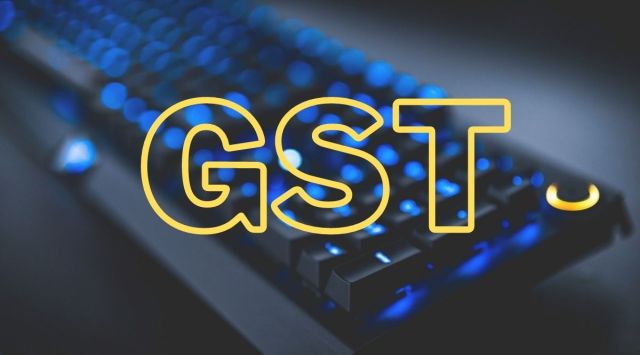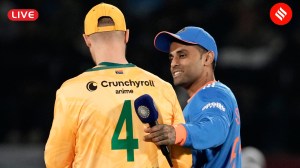“We are disappointed that the GST Council and authorities have chosen to apply 28% GST on the total entry amount including prize money,” said Joy Bhattacharjya, director general, of the Federation of Indian Fantasy Sports (FIFS). This has been a shared sentiment among all stakeholders of India’s sprawling online gaming industry ever since the Goods and Services Tax (GST) Council announced a 28 per cent tax on turnover of online gaming.
Bhattcharjya and many members of the FIFS believe that a change in valuation to tax on the total consideration will cause irreversible damage to the industry, lead to loss of revenue to the exchequer, and loss of employment for lakhs of skilled engineers. “This decision will have a chilling effect on the USD 2.5 billion of FDI already invested by investors and jeopardise potentially any further FDI in the sector,” he said adding that the decision will push users towards illegal betting platforms leading to user risk and loss of revenue for the government.

The Indian online gaming industry has been witnessing significant growth over the years and today there are nearly 1,000 companies operating in this industry which employ over 1 lakh people. The numbers are expected to grow substantially, transforming the online gaming industry into an economic powerhouse.
Regardless of the prospects, the industry has been grappling with some complex challenges related to the regulatory framework. And, one of these challenges is the implementation of the GST on online gaming. While the government has been in the process of finalising a GST structure for the industry, the latest development seems like a major challenge for many stakeholders in the online gaming industry.
Gaming in India
The latest decision by the GST Council has come as a shock to the gaming industry in India which is estimated to be worth around $ 2.8 billion in FY22. When it comes to online games in India, taxation and legality largely depend on if they are considered a game of chance or a game of skill. Games of chance are seen to attract more indirect tax or GST, while games of skill attract lower GST. The council has now argued that there should be no distinction between the two kinds of gaming. Much before the decision to levy 28 per cent GST, the primary dilemma was whether GST should be applied to the total pool of cash or just the service element earned by the online gaming platform.
However, now the Finance Minister has said that the tax will be levied on the entire value. The tax will essentially be levied on the full face value of the bet placed (or money paid to play the game) and not on the gross gaming revenue, which the industry sought. Industry insiders strongly feel that this will have a huge impact.
Abhishek Malhotra, managing partner of TMT Law Practice said that although the development came as a shock, it remains to be seen how and on what basis the policy shift will be incorporated into the law. “This will require an amendment to the GST Act, and the amendment shall have to be tested on the touchstone of the Constitution. It also remains to be seen whether it would survive a constitutional challenge, especially since the Supreme Court and at least two high courts have provided a distinct classification between games of skill and chance. To bundle everything under one head, is harsh and unsustainable,” said Malhotra.
Story continues below this ad
Big impact
The Ministry of Electronics and Information Technology has been designated as the nodal ministry for the online gaming sector and is responsible for giving the industry the boost it needs to grow sustainably. While for months it was not clear what path India will be adopting for its growing online gaming sector, however, the new taxation framework has given more reasons to worry for the industry. The 28 per cent GST is on the total face value of the games and to do this the government would need to amend the GST Act by including online games under the category of taxable claims which also includes, betting, lottery, and gambling.
“During the press conference, it was stated that these are only clarifications as the tax has always been intended to be at 28 per cent on the face value. We will have to see whether these amendments will be introduced retrospectively. If so, huge demands are likely to be enforced for the past period as well,” said Shashi Mathews, Partner, INDUS Law.
Matthews added that while the rate of the tax and value to be taxed falls entirely within the powers of the legislature, it should not be disproportionate or unrelated to the actual consideration. “These amendments are going to have a huge impact on the industry, and small operators may not survive the burden of this unproportionate taxation, which is going to be at par with that on betting and gambling.
Legitimate concerns
The latest announcement has triggered a barrage of reactions from all stakeholders. Some have also hailed it as a means to offer a level playing field between online gaming companies and traditional gaming companies. Meanwhile, the new 28 per cent GST is also believed to limit the ability of players in the gaming industry to invest in new games and this will likely impact cash flow and potential expansion plans.
Story continues below this ad
“The new tax rate of 28 per cent on Gross Gaming Value is an unexpected move by the GST Council, which will have far-reaching consequences for the industry and question its basic viability,” said Siddharth Sharma, SVP-Business Strategy, Head, Digital Works. Sharma feels that this will not only hinder the growth of the nascent industry, and its applications, but it will also compress new innovation opportunities.
“This decision does not take into account the pleas of the industry, global precedents, and even counters the favourable regulatory environment being built up for online gaming in recent months. Businesses have a legitimate concern that this move will push users towards illegitimate betting and gambling operators that don’t follow the laws of the land,” said Sharma.
International practices
To better understand the new taxation policy proposed by the government, it would be useful to see them within the context of taxation of the gaming industry across the world. Globally, there are two GST models in the taxation of the gaming industry Gross Gaming Revenue (GGR) and Turnover Tax Model. The GGR is essentially the total amount of money a gambling business brings in through bets deducting the amount that is paid for the win. Meanwhile, the turnover tax model is the tax levied on income from winnings of real money from online games. Here the entire prize pool is taxed. Countries such as the UK, Australia, Italy, Sweden, Singapore, Malaysia, etc., follow the GGR Model.
When it comes to the turnover tax model, it has been seen that this model could dramatically increase the tax burden on platforms, forcing most of them to pass the cost to customers who later move to offshore betting platforms. Recently, the UK changed its turnover tax policy to GGR to prevent the movement of gaming operations to offshore locations which led to loss of revenue for the country. Worldwide, several countries have shifted from a turnover tax model to GGR.









